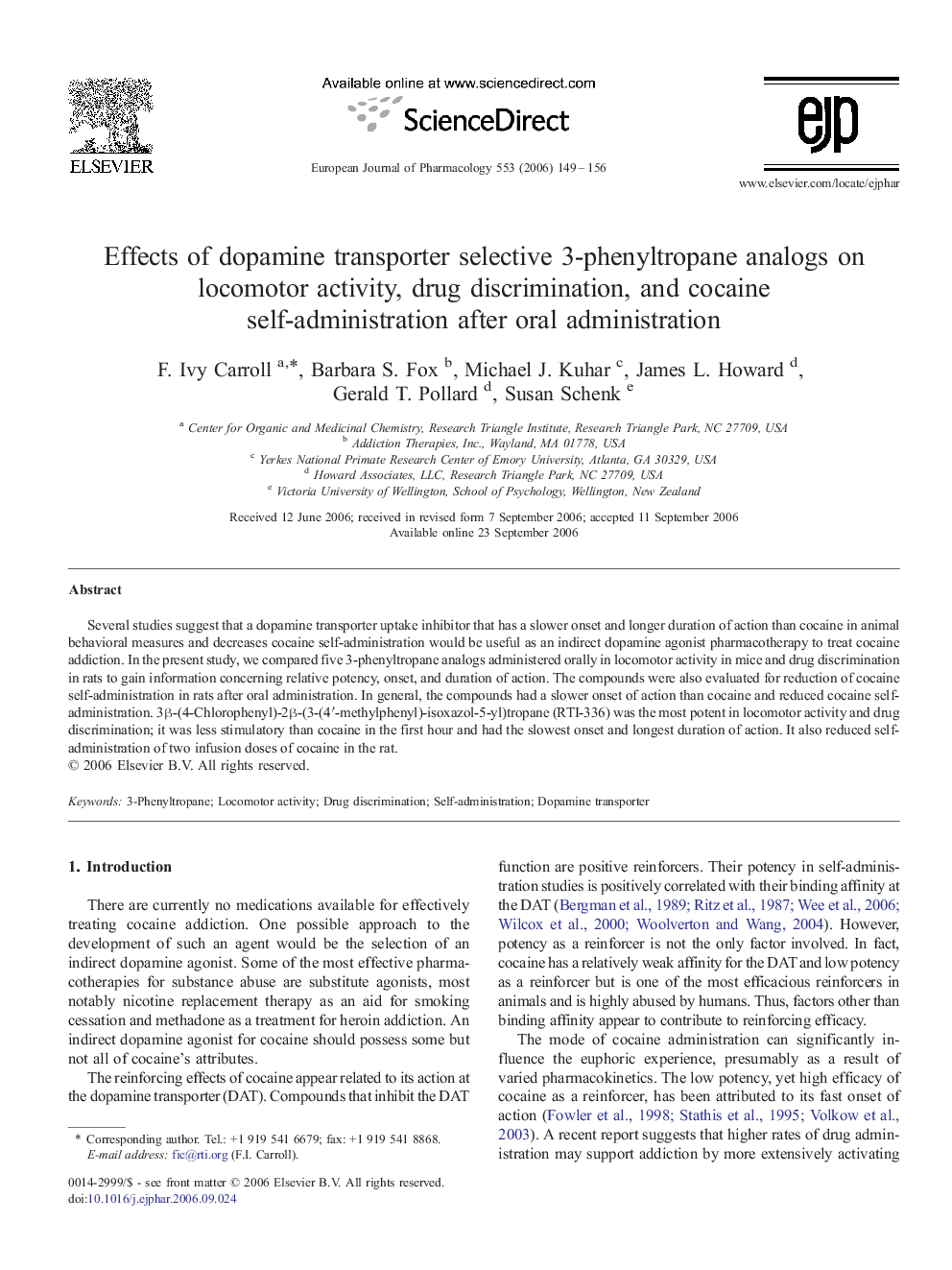| Article ID | Journal | Published Year | Pages | File Type |
|---|---|---|---|---|
| 2536563 | European Journal of Pharmacology | 2006 | 8 Pages |
Several studies suggest that a dopamine transporter uptake inhibitor that has a slower onset and longer duration of action than cocaine in animal behavioral measures and decreases cocaine self-administration would be useful as an indirect dopamine agonist pharmacotherapy to treat cocaine addiction. In the present study, we compared five 3-phenyltropane analogs administered orally in locomotor activity in mice and drug discrimination in rats to gain information concerning relative potency, onset, and duration of action. The compounds were also evaluated for reduction of cocaine self-administration in rats after oral administration. In general, the compounds had a slower onset of action than cocaine and reduced cocaine self-administration. 3β-(4-Chlorophenyl)-2β-(3-(4′-methylphenyl)-isoxazol-5-yl)tropane (RTI-336) was the most potent in locomotor activity and drug discrimination; it was less stimulatory than cocaine in the first hour and had the slowest onset and longest duration of action. It also reduced self-administration of two infusion doses of cocaine in the rat.
